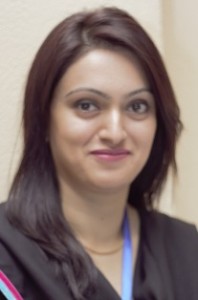It has become a common practice by Indian media to blame Pakistan for any kind of militant activity happening in any part of the world. Rather it has become a norm of India to denunciate Pakistan and divert attention of masses from its own domestic issues. Irony is anything created by Indian media is propagated in such a way that it’s believed widely and is spread like wild fire.Terrorism has become a global phenomenon now and particularly Pakistan has suffered most and is combating well in South Asian region with this jeopardy. Recently, Bangladesh suffered one such attack by terrorists and has raised questions on the working of these terrorist groups. Earlier Al Qaeda was considered a symbol of terror but now with ISIS holding its ground in Middle East and seems approaching towards South Asian region with help of already existing radical elements.
The bloodbath at the Holey Artisan Bakery Restaurant in Dhaka on July 1, 2016 has turned the world’s attention on rising extremist violence in the Bangladesh with raising questions on the government of Sheikh Hasina. Indian media smartly taking advantage of this mayhem put all blame on Pakistan and its intelligence agencies that they ordered this carnage to take revenge of hanging of Muslim leader. A timely response by both Bangladeshi and Pakistani government came condemning Indian media. Pakistan strongly rejected Indian media reports claiming Pakistan’s involvement in the Dhaka attack in which 20 foreigners were killed.In a statement, FO Spokesman Nafees Zakaria termed the allegations baseless and the reporting of such stories in Indian media “highly regrettable”.A section of India media had reported that Bangladesh Information Minister Hasanul Haq and Adviser to Bangladesh Prime Minister Gowher Rizvi blamed Pakistan and its intelligence agency Inter-Services Intelligence (ISI) for the attacks.Pakistani officials said that these stories are utterly baseless and unfounded and Pakistan strongly rejects such allegations. Pakistan deeply appreciates Gowher Rizvi’s timely rebuttal to Indian media’s reports. Gowher Rizvi contacted Pakistan’s high commissioner to Bangladesh and confirmed that the Bangladeshi government did not issue any such statement regarding Pakistan and that Indian media reports in this regard are false.He also advised Pakistan’s high commissioner to convey this clarification to the government of Pakistan in order to avoid any misunderstanding between the two countries.Pakistan has strongly condemned the terrorist attack in Dhaka and expressed solidarity with the government and the people of Bangladesh, and offered condolences to the families of the victims. Statement from Pakistan’s foreign office spokesman highlighted that Pakistan condemns terrorism in all its forms and manifestations and being a victim of terrorism itself, Pakistan welcomes Professor Gowher Rizvi’s call for international cooperation to fight the menace of terrorism. It seems that Indian media projected this issue to spoil Pakistan Bangladesh friendly relations. They must have done this after the green signal from Indian government which is all ready to malign Pakistan’s soft image. Modi government seems to make cracks between the Pakistan, Afghanistan, Iran and Bangladesh relations. Trying to create rifts between these Islamic countries India this time itself stands exposed in front of international community. The place where attack took place seems to be carefully chosen by terrorists as the café was located in the upscale Dhaka district of Gulshan, home to wealthy Bangladeshis, expats and foreign embassies. Twenty hostages were brutally murdered, most of them foreigners including nine Italians, seven Japanese and a U.S. citizen of Bangladeshi origin, along with two Bangladeshis. Accounts from survivors confirm that the attackers sought out the foreigners, sparing most of the Bangladeshi’s trapped inside the restaurant. Islamic State or IS claimed the responsibility for the killing of the hostages while Indian media had mentioned Hossain Toufique Imam, the political advisor to Prime Minister Sheikh Hasina stating that the Pakistan and ISI were involved. Hossain Toufique Imam’s statement was manipulated by Indian media who in fact had said that the pattern of attack by militants show that the hostages were killed with knives and this type of attack suggests involvement of local banned terrorist group Jamaat-ul-Mujahedeen. Bangladesh government later confirmed that all of the attackers were Bangladeshi nationals, with police saying they had previously tried to arrest five of them. But authorities continue to dispute any link to ISIS, which claimed that it was behind the attack. Gowher Rizvi mentioned that the terrorists are Bangladeshi, they are home-grown and they are politically motivated. The debate over ISIS is not the central issue. Terrorists are terrorists. They come in all sizes and shapes. We want to learn from the incident and the government will try to address the challenges. This timely response by Bangladesh shows that they do not want any cold relations with Pakistan and they are serious towards the efforts to exterminate violence and evils of terror not only from their own land but are wishful for regional peace.
- Latest
- Trending




